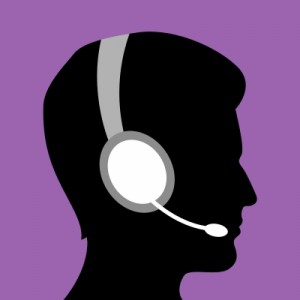Often one of the hardest parts about living on a low income is being reliant on welfare payments for some or all of your income. There is a stigma attached to being reliant on welfare and for many people it is demoralising to be required to report to Centrelink about what they are doing. Queues and wait times are often long and lead to anger at being reliant on the system. Dealing with Centrelink can cause frustration and stress in itself as the system of payments is very complicated.

Photo courtesy of renjith krishnan/freedigitalphotos.net
It is very hard for the average person to work through the maze that is Centrelink but it can be done. I am fortunate in that I understand the Centrelink system better than an average person. You see I worked at Centrelink for a number of years before I had children. And even though payments have changed over the years I have just had to keep up with the information rather than trying to understand a totally foreign system. I have experience working with Newstart, Pensions, and Family Tax Benefits. I understand what questions to ask staff and what records to keep to ensure I have the paperwork trail when dealing with them.
Issues for staff
Whenever you deal with Centrelink please keep in mind that the customer service officers are human beings too trying to support their families. They are trying to a hard job under sometimes trying situations. Here are some common issues that would occur when I worked there:
- One big problem is that Centrelink naturally has a large number of offices and large numbers of staff employed at those offices. If you think as a person walking off the street the payment system is complicated, imagine having to know the ins and outs of payments and legislation and being across changes.
- Staff turnover in the call centre is huge as it is such a stressful job which means that there are always new people just learning their way. Centrelink staff don’t mean to get things wrong but they are human and whilst learning such a complicated system they can make mistakes.

Image courtesy of digitalart/freedigitalphotos.net
- I remember when I was working there that the media would report a change in the news and so we would be inundated with request from the public for information. We would know as much as everyone else having heard it on the news the night before ourselves!
- Also the computer systems are erratic because it is a massive system and there are always going to be bugs that need to be worked out. One frustration staff have is that the system would be updated over a weekend and we’d come in on a Monday and there would be new screens and old ones gone without any notification or information on where to find things. This would mean it would literally be trial and error for the next few days trying to find things.
My top tips for dealing with Centrelink
- Be polite – this would have to be the biggest tip I can give you. There is only so many times a day a customer service officer can be called a b***t, a Centrelink whore, or yelled at before you really wonder why you bother trying to be nice. Sometimes no matter what you do for a person they will treat you like trash purely because you represent the organisation. I know there are some not so great Centrelink workers, I’ve worked with them, but on the whole the majority are trying to do the right thing by their customers so cut them a break.
- Documentation – ensure you have adequate documentation for you visit. Ensure that when they photocopy the documentation that they date stamp it. Make a note in your diary as to what you have lodged on that day.

Image courtesy of twobee/freedigitalphotos.net
- Get receipt numbers – whenever you contact Centrelink to make an enquiry a receipt number is generated. Keep this receipt number.
- Keep a diary where you document what income you earned, what date you reported, and the receipt number you were given. Make a note of any discussions you had with an person at Centrelink in your diary. This really helps with recall if there ends up being a discrepancy between what you said and what occurred on your record.
- Be patient – it takes time to serve people. The government is very good at reducing staffing levels to save money but this comes at a cost to the remaining staff and customers. Expect to be waiting on hold for a few hours and use this time to have a coffee and read a book why you wait. Being prepared for a wait makes it not seem so tiresome.

Image courtesy of Apolonia/freedigitalphotos.net
- Have a list of questions ready you need to ask and paper to take down notes.
- Best times to contact Centrelink – there are some very busy times that really should be avoided when contacting or attending Centrelink without an appointment. Monday or a day after a public holiday – unless you absolutely positively have to DO NOT CONTACT as it will be insane. Between 12pm-2pm as it is lunch time. I find about 11am or 2.30pm about the best times to make contact. If lodging your forms at an office about 3.30-4.30pm is normally quiet as most people get in early and get that out of the way first thing in the morning.
